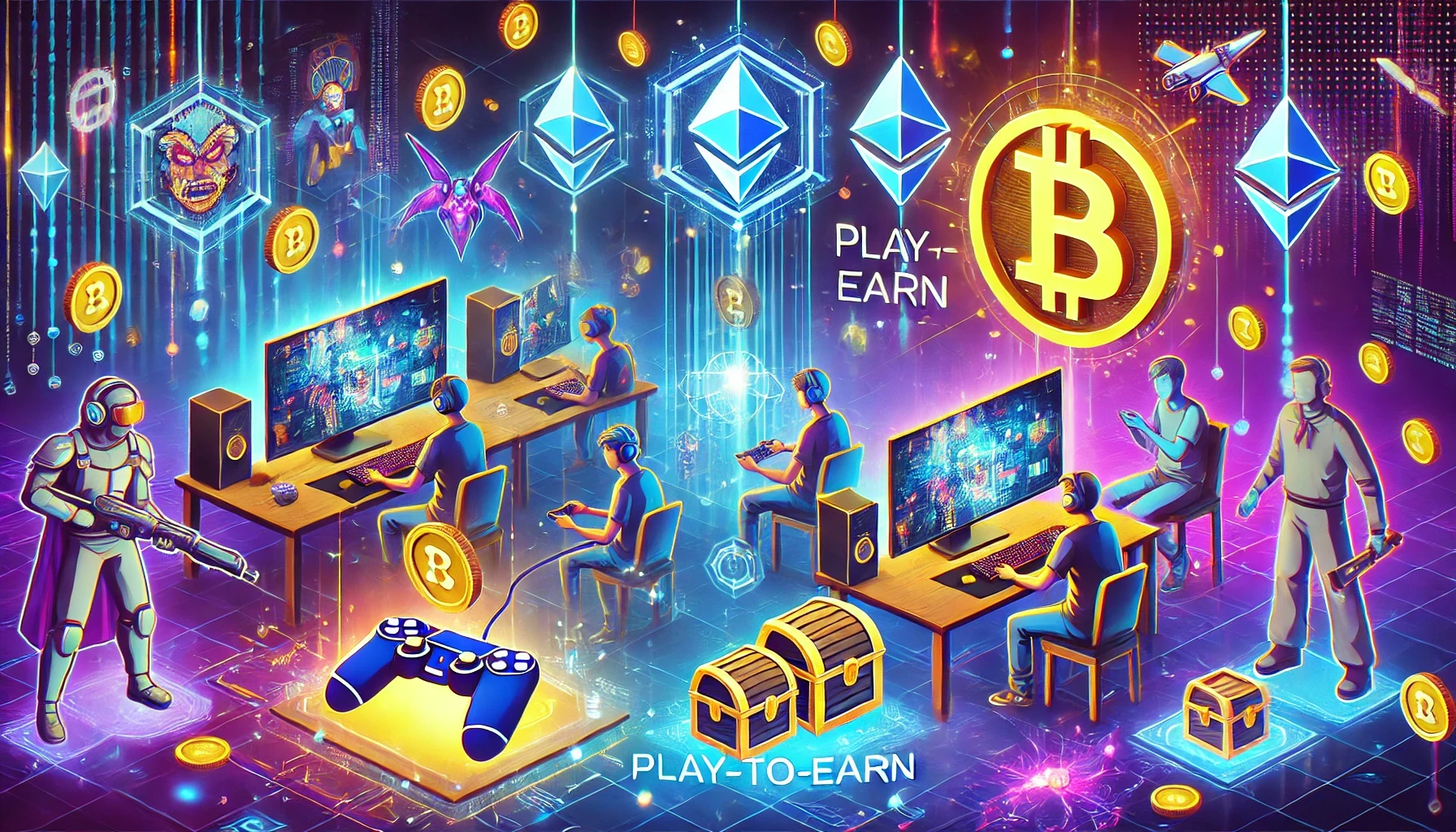What is Blockchain Gaming?
Blockchain gaming refers to video games that integrate blockchain technology to enable features like decentralized ownership, tokenized assets, and transparent economies. Unlike traditional games, where in-game items are controlled by developers, blockchain games allow players to truly own their digital assets through NFTs (Non-Fungible Tokens) and trade them on open markets.
The Rise of Play-to-Earn (P2E)
One of the most exciting developments in blockchain gaming is the Play-to-Earn model. In P2E games, players can earn real-world value by playing the game, completing tasks, or trading in-game assets.
Examples: Games like Axie Infinity and The Sandbox have popularized this model, allowing players to earn cryptocurrency or NFTs that can be sold for profit.
Impact: P2E has created new economic opportunities, especially in developing countries, where players can earn a living through gaming.
True Ownership of In-Game Assets
In traditional gaming, players spend money on in-game items but never truly own them. Blockchain changes this by using NFTs to represent unique, tradable assets.
Benefits: Players can buy, sell, or trade their assets freely, even outside the game. This creates a player-driven economy and adds real value to in-game items.
Examples: Games like Decentraland and CryptoKitties allow players to own and monetize virtual real estate and digital collectibles.
Decentralized Gaming Economies
Blockchain enables decentralized economies where players have a say in the game’s development and governance.
Tokenomics: Many blockchain games have their own cryptocurrencies, which players can earn, spend, or stake to influence the game’s direction.
Community-Driven: Players can vote on updates, new features, or even the allocation of resources, creating a more democratic gaming experience.
Challenges in Blockchain Gaming
While blockchain gaming offers many benefits, it also faces challenges:
Scalability: Blockchain networks can struggle with high transaction volumes, leading to slow speeds and high fees.
Adoption: Many gamers are still unfamiliar with blockchain technology, and the learning curve can be steep.
Regulation: Governments are still figuring out how to regulate blockchain-based assets, which could impact the industry’s growth.
The Future of Blockchain in Gaming
The potential of blockchain in gaming is immense. Here’s what to expect in the coming years:
Mainstream Adoption: As blockchain technology becomes more user-friendly, more gamers and developers will embrace it.
Interoperability: Players will be able to use their assets across multiple games and platforms, creating a unified gaming ecosystem.
Immersive Experiences: Blockchain will play a key role in the development of the metaverse, where games and virtual worlds merge.
How to Get Started with Blockchain Gaming
Choose a Game: Start with popular blockchain games like Axie Infinity, The Sandbox, or Decentraland.
Set Up a Wallet: Create a cryptocurrency wallet like MetaMask to store your assets and tokens.
Learn the Basics: Familiarize yourself with blockchain concepts like NFTs, cryptocurrencies, and smart contracts.
Join the Community: Engage with other players and developers to stay updated on trends and opportunities.
Conclusion
Blockchain is revolutionizing the gaming industry by empowering players, creating new economic models, and enabling true ownership of digital assets. While challenges remain, the future of blockchain gaming is bright, offering endless possibilities for innovation and growth. Whether you’re a gamer, developer, or investor, now is the time to explore this exciting new frontier.
